TL;DR
The root of your problem is the method by which you are trying to verify that the files have been created. For more information, read the detailed explanation below.
Here are the facts:
perl does not give any errors when using mkdirL or openL calls.perl can open files created, and read the contents, using openL.
Therefore the problem is due to the fact that whatever tool you are using, is either using ANSI versions of Windows API calls, or specifying relative paths, or a combination of both, and therefore their paths are restricted to 260 characters.
To test this, I ran the script under D:\t. Lo and behold, GVim failed to open a file when $i = 250:

D:\t is four characters, \test is another five. Therefore, 250 + 9 = 259, which hits 260 the moment you add another \.
Using shortpathL
Try this:
#!/usr/bin/env perl
use strict;
use warnings;
use Win32::LongPath;
`cmd /c rd /s /q test`;
mkdirL('test') or die "$^E";
my $dir_length = 255;
my $dir_name = 'test/'
. sprintf("%04d", $dir_length)
. ('a' x ($dir_length - 4))
;
mkdirL($dir_name) or die "$^E";
my $file_name = "$dir_name/" . ('z' x 200) . '.txt';
printf "% 3d\n", length $file_name;
openL(\my $fh, '>', $file_name) or die "$^E";
print $fh "Hello!\n" or die "$^E";
close $fh or die "$^E";
system 'notepad.exe', shortpathL($file_name);
You will get:

Therefore, give the short path to any external programs which you cannot rely on to use the Unicode interface.
Long winded explanation
Now that I have had a chance to actually try this on a 64-bit Windows 8.1 system, I cannot replicate the problem.
Here is the code I used:
#!/usr/bin/env perl
use strict;
use warnings;
use Win32::LongPath;
`cmd /c rd /s /q test`;
mkdirL('test')
or die "$^E";
for my $i (200 .. 255) {
my $dir_name = 'test/' . sprintf("%04d", $i) . ('a' x ($i-4));
mkdirL($dir_name) or die "$^E";
my $file_name = "$dir_name/" . ('_' x 200) . '.txt';
printf "% 3d\n", length $file_name;
openL(\my $fh, '>', $file_name)
or die "$^E";
print $fh 'Hello!' or die "$^E";
close $fh or die "$^E";
}
Here is the output:
C:\…\Temp> perl tt.pl
410
411
412
413
414
415
…
460
461
462
463
464
465
I am also attaching a couple of screenshots:


Now, I can report that Explorer has trouble navigating into any directory after C:\...\Temp\test\0220aaaaaaaaaaaaaaaaaaaaaaaaaaaaaaaaaaaaaaaaaaaaaaaaaaaaaaaaaaaaaaaaaaaaaaaaaaaaaaaaaaaaaaaaaaaaaaaaaaaaaaaaaaaaaaaaaaaaaaaaaaaaaaaaaaaaaaaaaaaaaaaaaaaaaaaaaaaaaaaaaaaaaaaaaaaaaaaaaaaaaaaaaaaaaaaaaaaaaaaaaaaaaaaaaaaaaaaa
and GVim cannot open files in subsequent directories. That is, system 'c:/.../gvim.exe', $file_name; issued from within the script results in

Presumably GVim runs into the following from Naming Files, Paths, and Namespaces
Because you cannot use the "\\?\" prefix with a relative path, relative paths are always limited to a total of MAX_PATH characters.
By coincidence, the length of the path of my %TEMP% directory happens to be 33 characters. Add to that 5 (length of \test), and we have 38. Add that to 221, and we get 259. Now, the moment you add a directory separator to that string, you hit 260.
Which brings me to, what is the length of the full path of the working directory under which you are creating test?
In better news, perl is able to read back everything written:
#!/usr/bin/env perl
use strict;
use warnings;
use Win32::LongPath;
`cmd /c rd /s /q test`;
mkdirL('test')
or die "$^E";
for my $i (220 .. 255) {
my $dir_name = 'test/' . sprintf("%04d", $i) . ('a' x ($i-4));
mkdirL($dir_name) or die "$^E";
my $file_name = "$dir_name/" . ('_' x 200) . '.txt';
printf "% 3d\n", length $file_name;
openL(\my $fh, '>', $file_name)
or die "$^E";
print $fh 'Hello!' or die "$^E";
close $fh or die "$^E";
openL(\my $in, '<', $file_name)
or die "$^E";
print <$in>, "\n" or die "$^E";
close $in or die "$^E";
}
outputs:
…
459
Hello!
460
Hello!
461
Hello!
462
Hello!
463
Hello!
464
Hello!
465
Hello!
Because Win32::LongPath internally normalizes paths so they follow the "To specify an extended-length path, use the "\\?\" prefix" recommendation, and then uses the Unicode version of API calls, e.g. CreateFileW, openL does not run into such issues.
In the ANSI version of this function, the name is limited to MAX_PATH characters. To extend this limit to 32,767 wide characters, call the Unicode version of the function and prepend "\\?\" to the path. For more information, see Naming Files, Paths, and Namespaces.
How are you verifying if the files have been correctly created?
Also, see "Why is Perl system call failing to invoke internal Windows command?" for the explanation of qx{cmd /c rd /s /q test}




